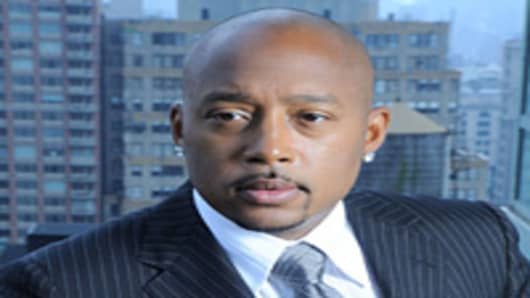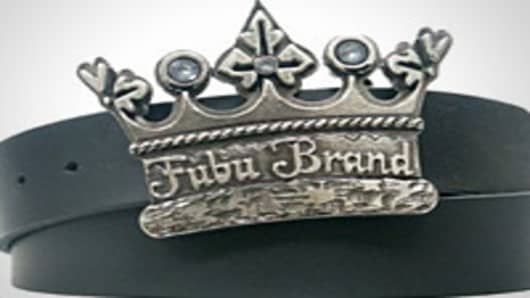It took some unconventional moves to get there.
FUBU started with a tie-top hat John had seen on a rap group in a video. The hat wasn't widely available and John, whose mother had taught him to sew, decided to make a few of his own. His friends liked the hats, too. So with about $40 in material, he produced a few dozen. In one day, he sold all of them on a street corner in Queens, New York and made $800 in cash.
"I learned that I was on to something," he said.
But because he lacked the funds, he shut down and restarted the business three times before it began to get its footing.
With the help of three childhood friends, J. Alexander Martin, Carl Brown and Keith Perrin, John pressed on with FUBU and expanded beyond hats to clothing. They all kept their day jobs, which for John meant waiting tables at Red Lobster.
During his off hours, however, John would hit music video sets and try to coax rappers to wear FUBU apparel in the shoot, a move that would ultimately pay off as millions of fans saw their favorite stars wearing FUBU clothing.
He heard the word "no" a lot but kept on it, seeing each trip as a new chance to further the business.
"I still see people today who have the biggest opportunity in their face and they don't take advantage of it," says John. "It didn't matter how small or large the opportunity was. I looked at everything as an opportunity."
A big break finally came when LL Cool J, a rapper who had grown up on the same street as John in Queens, agreed to pose for a photograph wearing a FUBU shirt. To do so was a risk for LL Cool J, whose star was on the rise.
"But he looked at me and said, 'I wouldn't be where I was if people around my neighborhood hadn't helped me,'" said John, who keeps in touch with LL Cool J, now starring on the television drama "NCIS: LA."
John used the photograph to market FUBU. He took it with him when he and his partners attended a major fashion trade show in Las Vegas. Unlike other fashion companies, FUBU didn't have a booth at the show. John and his partners stayed in a hotel five miles away, but they drummed up enough noise about their clothing that they landed $400,000 in orders by the end of the show.
But John didn't have the funds to manufacture the orders. Turned down by 27 banks for a business loan, he and his mother finally took out a second mortgage on their home in Queens. His partners moved in, and they turned the home into a makeshift factory.
"I would not recommend it," said John, looking back. It was a risky financial move, and one that could have cost them their house.
On the flip side, he had a plan. He had already spent several years getting to know the market and the customers. After about three years of approaching various artists, using a rotation of just 10 shirts, FUBU apparel had been worn in some 30 to 40 music videos.



